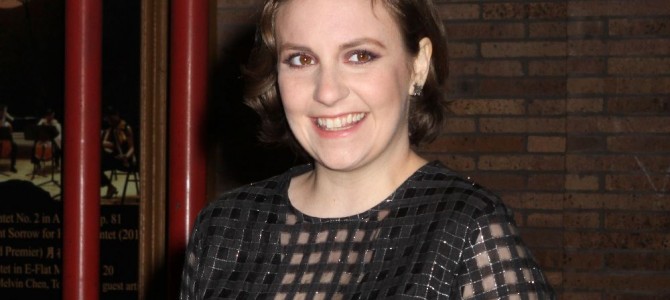
The simple threat of hearing her name might merit a trigger warning for many conservatives. She is the embodiment of modern liberal feminism and she has been the self-proclaimed enemy of conservatism for quite some time. She is everything conservatives love to hate; so we love to hate her.
And she has given us good reason. From her often provocatively feminist TV show “Girls,” to her autobiography, to wishing she had had an abortion (a statement for which she later apologized), it doesn’t take a conservative long to find principled ground on which she can be condemned. But Lena Dunham’s recent story in Vogue should give us pause, break our hearts, and bring forth compassion.
This is the story of a 31-year-old woman who has longed to bear children for more than half her life. After many years of trying to identify the source of her physical pain she gives up, checks herself into the hospital, and refuses to leave until something changes or they remove her uterus. Despite her deep desire to procreate, she ends up sacrificing her uterus out of desperation. (It should be noted she didn’t ever actually really want to have an abortion, she wanted to identify with women who had had an abortion)
Throughout her painstaking story she interjects with light somewhat awkward jokes that only serve to show her humanity. She muses of the bad TV she watched for days while waiting for an answer and shares all of the inappropriate responses she developed for every time a nurse asked her if she could be pregnant following the procedure — “In that case they took out the wrong organ yesterday!” It’s dark. But what else is a woman to do. It is not unlike the tales of Lincoln, who was known to make light in the heaviest situations, because if you didn’t laugh, you would have to cry and she can’t cry. Not there. Not yet.
At this point in her narrative I am not crying either. I originally prescribed motives to fit a certain cultural narrative. I assumed that as a successful modern woman, children, pregnancy, and fertility are not important to her. I assumed that she would believe she transcended these desires and they are only inconveniences.
But then she slashes through all assumptions: “The fact is, I never had a single doubt about having children. Not one, since the day I could understand how families were made. And pregnancy was the glorious beginning of that vision.”
Then she takes it even deeper as she speaks of the time she wore a prosthetic pregnant belly for her TV show: “I feel the innate power of pregnancy, and I look forward to the moment when my stomach swells naturally and isn’t made of the same substance as breast implants.”
Here is where I felt a sudden kinship with Lena. A kinship I had never felt before. I too remember longing not only for children, but to bear children. Lena needs our love.
This is not an endorsement of Lena’s politics. This is not an acceptance of her social commentaries. But to put it plain and simple, Lena needs love and this is a love conservatives can give. This is a time to exercise our principles of life and family.
We must see this as the tragedy it really is. She was in pain for years and did not receive the appropriate care, she did not have doctors who took her concern seriously, and she had no one to advocate for her and her fertility.
To make matters worse, some medical professionals argue that a hysterectomy might not even address her pain. She is a woman who was possibly robbed of her ability to procreate due to the medical community throwing off her continued concerns about her reproductive health. She is not celebrating her hysterectomy — she simply felt that it was her only choice.
This loud voice in the pro-choice movement has just come face to face with the reality that fertility is not always a “choice.” As she recovers physically, she knows she has been beaten mentally and spiritually.
“Because I had to work so hard to have my pain acknowledged, there was no time to feel fear or grief,” she writes. “To say goodbye. I made a choice that never was a choice for me, yet mourning feels like a luxury I don’t have. I weep, big stupid sobs, alone in the bathtub or in the area where, in a terribly cliché turn, I have started crafting.”
Through our public dialog, let’s offer her a safe place to cry. In our culture of life, let’s offer her a safe place to mourn the loss of her fertility. In solidarity read her words: “But I wanted that stomach. I wanted to know what nine months of complete togetherness could feel like.”
And let it break your heart.









